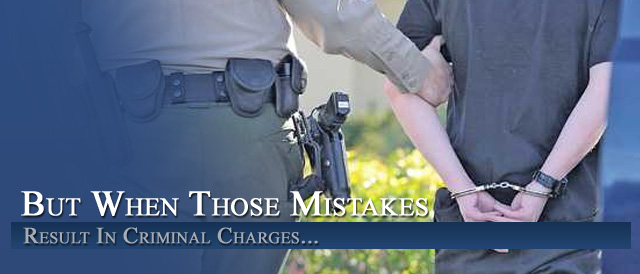




Colorado Juvenile Drug Crimes Defense – Fighting The Urge To Answer Police Questions – Those Are Not My Drugs
By H. Michael Steinberg – Colorado Juvenile Drug Crimes Criminal Defense Lawyer
 Colorado Juvenile Drug Crimes Defense – Fighting The Urge To Answer Police Questions – Those Are Not My Drugs – One of the most common crimes charged against juveniles in the state of Colorado is Possession Of A Controlled Substance. “Possession” scenarios can take many forms – but for juveniles it usually takes the form of a traffic stop where drugs are found in the car.
Colorado Juvenile Drug Crimes Defense – Fighting The Urge To Answer Police Questions – Those Are Not My Drugs – One of the most common crimes charged against juveniles in the state of Colorado is Possession Of A Controlled Substance. “Possession” scenarios can take many forms – but for juveniles it usually takes the form of a traffic stop where drugs are found in the car.
Understanding How The State of Colorado Proves A Possession Of A Controlled Substance Case
Possession charges involve the following very basic three elements:
The person charged:
-
•knowingly and intentionally possessed a controlled substance,
-
•without a valid prescription,
-
•in a quantity sufficient for personal use or sale.
Possession cases, however, can be complex. Possession can be “ACTUAL” or “CONSTRUCTIVE.
Proof beyond a reasonable doubt of the “actual” possession or “constructive” possession – (either one of these forms of possession) – is enough for a jury to convict.
The ACTUAL Illegal Possession of Controlled Substances in Colorado
The ACTUAL possession of illegal controlled substances is the easy case. An example of actual possession is when illegal drugs are found on a subject’s person such as in a pocket or a purse or brief case being carried on their person. The defense – “these aren’t my drugs – I was just holding them for a friend” – is NOT a defense to a charge of possession. When a group of juveniles in an automobile are asked “who’s drugs are these” ALL individuals being questioned should refuse to answer the question! Since knowledge of the existence of the illegal drugs is a critical component to proof of possession beyond a reasonable doubt, no information means no case.
Furthermore – technically – one cannot own – there is no such thing as – the “ownership” of illegal drugs. Contraband, no matter what form it takes, – stolen goods, illegal to possess controlled substances, or state secrets can never be “owned” – even temporarily.
The CONSTRUCTIVE Illegal Possession of Controlled Substances in Colorado
The CONSTRUCTIVE possession of a controlled substance can be complex. “Constructive” possession means that the Defendant doesn’t actually have the drugs on his or her person – such as in their pocket. It does mean, however, that the Defendant “had access” to and or “control over” the place where the drugs are found.
By using a constructive possession theory of responsibility the DA does not have to actually prove that someone is using or individually controlled a controlled substance in order to charge them with possession. This is the theory of prosecution most often used against young people who are stopped driving around together in the cities and towns of Colorado.
When illegal drugs are “found” in a car during a routine traffic stop, or juveniles are rounded up while attending “keggers” – this is the theory of prosecution used to make the arrests – even when these same young people may have had no connection to the illegal acts occurring at the party.
Remaining silent is the key in these situations. If, during the investigation, the juveniles exercise their constitutional right to “remain silent,” their criminal defense lawyer is free to argue to a jury at trial that a friend, relative or even a third party – unknown to the owner or driver of a vehicle – is as probable a theory of the truth as is the prosecutor’s theory of “constructive possession.”
Bottom line – without an admission from the “owner” of the drugs or other strong and conclusive evidence of knowledge of drugs by others present – juries hesitate to speculate that the drugs constructively belong to the physically closest individual in the car. Similarly – when drugs are found in a “common area of a home” often all present are wrongly accused of the illegal possession of controlled substance.
Mere access to the location of illegal drugs is used as a theory of criminal responsibility by unscrupulous police and prosecutors to charge the innocent.
Where a person has direct access to a home, garage or the trunk of a car where illegal substances are found, the theory of prosecution – where multiple persons have access to the same areas – is sometimes called the “joint possession” of a controlled substance. These cases are inherently weak and should be fought and taken to trial. ANYBODY can leave drugs in a person’s car or their home without that person’s knowledge.
Summary – A Colorado Prosecutor MUST PROVE ACTUAL KNOWLEDGE
Where drugs are found in the cars and homes of young juveniles – the prosecution must produce evidence to PROVE that the accused Defendant must have had knowledge of the existence of the controlled substances. In the case of actual possession – it is clear because there is often direct, physical control over the illegal drugs – knowledge and control over the drugs is difficult to deny.
On the other hand, constructive possession requires that the person requires the State of Colorado to prove the suspect:
“has the right to exercise physical control over an item, knows that he has this right, and intends to exercise physical control over it at some time, either directly or through other persons.”
As noted above – you must understand the position you place your friends and family in when you hand “your” illegal to possess drugs to them and then leave for a vacation. BOTH you AND your trusting friend or relative have procession of the drugs. Your friend or relative would have “actual” possession of the drugs while you were gone and you would have “constructive” possession of the drugs.
BUT “Mere Presence” At the Scene Of Possession Of Illegal Controlled Substances Is NOT ENOUGH
Here’s the good news – just because you are present at the scene of a cache of drugs does NOT make you guilty of possession of the controlled substances. Two people can live in an apartment and only one of them may know of the existence of illegal controlled substances stashed there.
Cases are always fact specific usually requiring the review of an experienced criminal defense lawyer.
It has been said that:
Evidence which furnishes nothing stronger than a suspicion, even though it would tend to justify the suspicion that the defendant committed the crime, is not sufficient to sustain a conviction.
Colorado Drug Charges Can Take Many Forms
The crime of the Possession of a Controlled Substance – like all crimes – must be viewed in terms of the elements of the crimes that must be proven beyond a reasonable doubt. The “elements” of these crimes are the essential ingredients, or important parts, of the proof of the crimes.
What follows are the elements of the most common controlled substance crimes in the State of Colorado – the possession – the use – and the distribution of controlled substances.
THE UNLAWFUL POSSESSION OF A CONTROLLED SUBSTANCE
The elements of the crime of unlawful possession of a controlled substance are:
1. That the defendant,
2. in the State of Colorado, at or about the date and place charged,
3. knowingly,
4. possessed a controlled substance.
5. and that the defendant’s conduct was not legally authorized by an affirmative defense
THE UNLAWFUL USE OF A CONTROLLED SUBSTANCE
The elements of the crime of unlawful use of a controlled substance are:
1. That the defendant,
2. in the State of Colorado, at or about the date and place charged,
3. used any controlled substance, and
4. the controlled substance was not dispensed by or under the direction of a person licensed or authorized by law to prescribe, administer, or dispense the controlled substance for bona fide medical needs.
5. and that the defendant’s conduct was not legally authorized by an affirmative defense.
THE UNLAWFUL DISTRIBUTION, MANUFACTURING, DISPENSING, OR SALE OF A CONTROLLED SUBSTANCE
The elements of the crime of unlawful distribution, manufacturing, dispensing, or sale are:
1. That the defendant,
2. in the State of Colorado, at or about the date and place charged,
3. knowingly,
[HMS – here are at least FIVE ways to commit this crime]
[4. manufactured, dispensed, sold, or distributed a controlled substance.]
[4. possessed a controlled substance with intent to manufacture, dispense, sell, or distribute.]
[4. induced, attempted to induce, or conspired with one or more other persons to manufacture,dispense, sell, or distribute a controlled substance.]
[4. induced, attempted to induce, or conspired with one or more other persons to possess a controlled substance with intent to manufacture, dispense, sell, or distribute.]
[4. possessed one or more chemicals or supplies or equipment with intent to manufacture a controlled substance.]
5. and that the defendant’s conduct was not legally authorized by an affirmative defense.
Colorado Juvenile Drug Crimes Defense – Fighting The Urge To Answer Police Questions – Those Are Not My Drugs
If you found any information I have provided on this web page article helpful please click my Plus+1 button below so that others may also find it.
Never stop fighting – never stop believing in yourself and your right to due process of law.
ABOUT THE AUTHOR: H. Michael Steinberg – Email The Author at [email protected] – A Denver Colorado Juvenile Crimes Criminal Defense Lawyer – or call his office at 303-627-7777 during business hours – or call his cell if you cannot wait and need his immediate assistance – 720-220-2277. Attorney H. Michael Steinberg is passionate about criminal defense. His extensive knowledge and experience of Colorado Criminal Law gives him the edge you need to properly handle your case.
A Disclaimer: While every effort has been made to ensure the accuracy of this publication, it is not intended to provide legal advice as individual situations will differ and should be discussed with an expert and/or lawyer. If you are seeking counsel there maybe other more specific technical or legal advice on the information provided and related topics. For that, please contact the author.
If you are charged with A Colorado crime or you have questions about the topic of this article – Colorado Juvenile Drug Crimes Defense – Fighting The Urge To Answer Police Questions – Those Are Not My Drugs, please call our office. The Law Offices of H. Michael Steinberg, in Denver, Colorado, provide criminal defense clients with effective, efficient, intelligent and strong legal advocacy. We can educate you and help you navigate the stressful and complex legal process related to your criminal defense issue.
 H. Michael Steinberg, is a Denver, Colorado criminal defense lawyer with over 40 years of day to day courtroom experience – specializing in Colorado Criminal Law along the Front Range. He will provide you with a free initial case consultation to evaluate your legal issues and to answer your questions with an honest assessment of your options. Remember, it costs NOTHING to discuss your case. Call now for an immediate free phone consultation.
H. Michael Steinberg, is a Denver, Colorado criminal defense lawyer with over 40 years of day to day courtroom experience – specializing in Colorado Criminal Law along the Front Range. He will provide you with a free initial case consultation to evaluate your legal issues and to answer your questions with an honest assessment of your options. Remember, it costs NOTHING to discuss your case. Call now for an immediate free phone consultation.
Helping Clients To Make Informed Decisions In the Defense of Colorado Criminal Cases.
Contact A Lawyer with Three Decades of Experience as a Denver Criminal Attorney at The Steinberg Colorado Criminal Defense Law Firm today.
Colorado Defense Lawyer H. Michael Steinberg regularly appears and provides solid criminal defense for clients throughout the Front Range of Colorado – including the courts of:
Adams County (Adams County criminal defense lawyer), Arapahoe County (Arapahoe County criminal defense lawyer), City and County of Boulder (Boulder County criminal defense lawyer), City and County of Broomfield (Broomfield County criminal defense lawyer), City and County of Denver (Denver criminal defense lawyer), Douglas County (Douglas County criminal defense lawyer), El Paso County – Colorado Springs (Colorado Springs criminal defense lawyer), Gilpin County (Gilpin County criminal defense lawyer), Jefferson County (Jefferson County criminal defense lawyer), Larimer County, and Weld County ( Larimer and Weld County criminal defense lawyer,…
and all the other cities and counties of Colorado along the I-25 Corridor… on cases involving the subject of this article – Colorado Juvenile Drug Crimes Defense – Fighting The Urge To Answer Police Questions – Those Are Not My Drugs.
Other Articles of Interest:
- Colorado Juvenile Criminal Law – Dorm Room Searches – Can University Police Search My Dorm Room?
- Colorado Criminal Law – Understanding Searches Of Juveniles In Schools
- In Colorado – Can The Police Question My Child Without My Permission?
- If Your Child Is Arrested In A Colorado Juvenile Criminal Case – Some Tips For Parents From A Colorado Juvenile Criminal Defense Lawyer
- Colorado Criminal Law – Can The Police Detain Me While A Search Warrant Is Executed?












